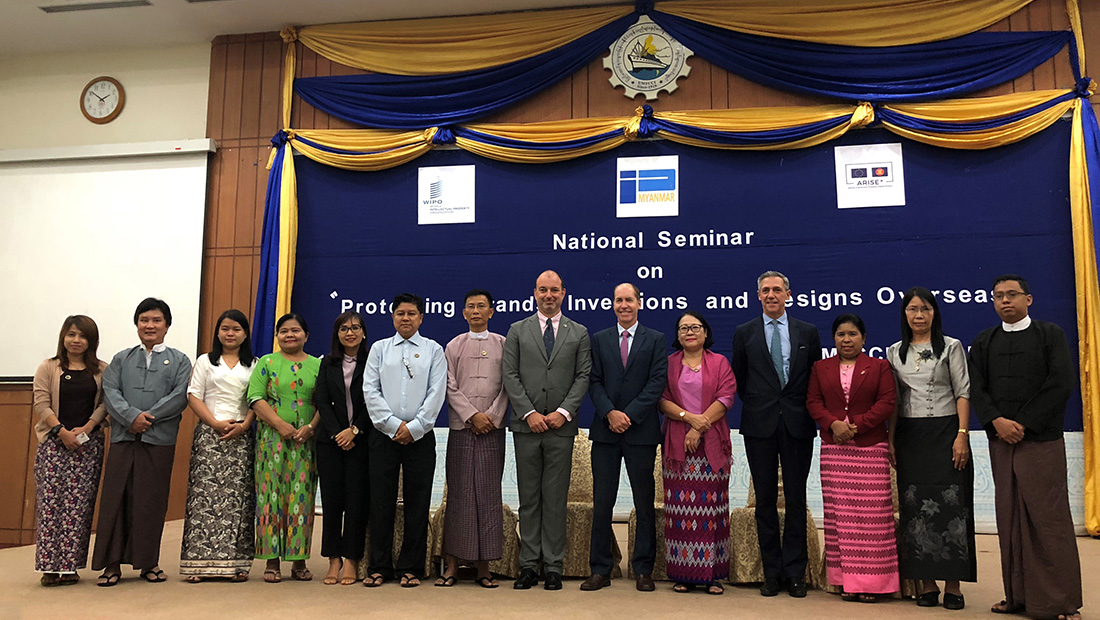International IP practices examined at briefing for Myanmar IP officials and SMEs
The “National Seminar on Protecting Brands, Inventions and Designs Overseas” for Myanmar IP officials and small-medium enterprises (SMEs) was held in Yangon on 12 November, highlighting the key types of IP, the EU and international registration systems, and international IP treaties. The event was organised by the World Intellectual Property Organization (WIPO) and ARISE+ IPR, in cooperation with the Myanmar Intellectual Property Proprietors Association (MIPPA).
During the opening remarks, WIPO Singapore Office Director Denis Croze emphasised the importance of a strong IP system for SMEs given that intangible assets increasingly represent a greater proportion of an enterprise’s capital.
After a briefing to delegates on the opportunities for SMEs under the proposed new IP laws from President of the Myanmar Intellectual Property Proprietors’ Association (MIPPA) Kyaw Kyaw Win, IP experts shared information on how SMEs can protect their IP assets internationally, including through the EU trademark (EUTM) and industrial design (RCD) systems, and WIPO-administered international treaties such as the Lisbon Agreement and Hague Agreement. “The EU trademark and design systems allow single registration for the entire EU territory, making it the most convenient and cost-effect way for businesses to protect their IP assets all EU Member States,” stated ARISE+ IPR Project Leader Ignacio de Medrano Caballero. The WIPO, EUIPO and ASEAN online IP databases and tools were also demonstrated and alternative dispute resolution practices discussed.
As Deputy Director General and Head of the Intellectual Property Department Moe Moe Thwe confirmed during the seminar, Myanmar is in the process of legislating four new IP laws, for trademarks, patents, industrial designs and copyright. All four laws have been passed by the upper house, with the Patent Law and Industrial Design Law still under review by the lower house. Once passed, the laws will go to the Assembly of the Union for review and approval. It is anticipated that Myanmar will establish a new IP office and that the IP laws will create an accessible and efficient system of IP registration in the country.

